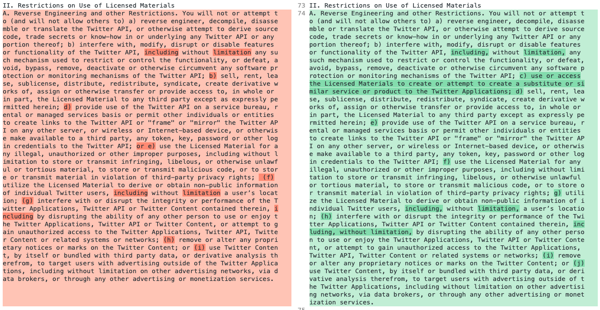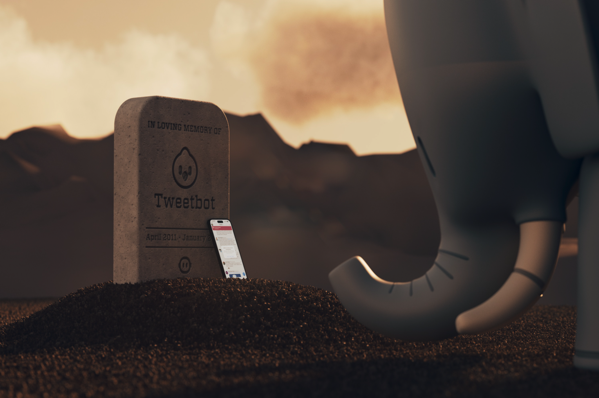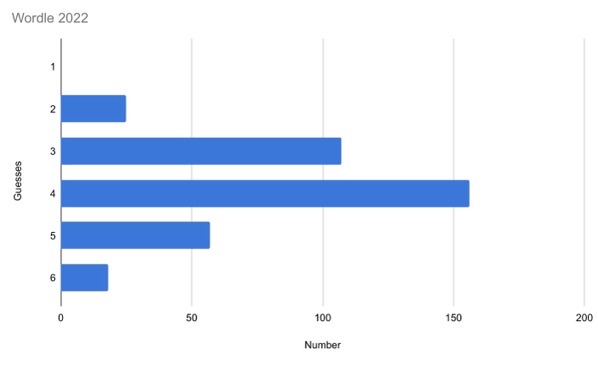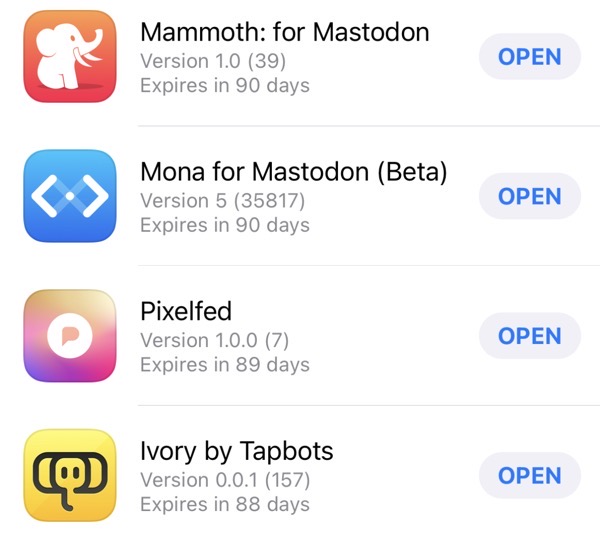From https://twitter.com/johncutlefish/status/1601078599259656193?s=61&t=dv7fk516elGxwJ8I0YBelA
Author: iandick
Linear Roadmaps are Misleading
Linear roadmaps are misleading without a crystal ball for seeing the future. A roadmap that recognizes the existence of risk as time goes on is more honest. But an effective PM needs to anticipate possible branches, too – and create clear criteria for following each path.

The second roadmap is a very good start, because it recognizes the existence of uncertainty. But that’s just the first step – the team should be actively working to reduce uncertainty. Make a plan: this is what we need to learn by this milestone to decide what to do next.
By being explicit about our plans for the future, we are not increasing risk or reducing agility. We open our ideas to critique and experimentation before they are set in stone, so that they can evolve with our understanding of opportunities.
It’s crucial to set success criteria at the beginning of the project: we know that we were successful if this metric is increased by that amount. But you should also have a plan for when it hasn’t, and find out before the last minute whether or not it’s working.
The temporal component in diagram 3 is virtual. The steps are not timeboxed: we know that hypothesis A will be followed by different experiments depending on whether it was confirmed, or we know we may achieve our OKR and will need to do something after, but we don’t know when.
The straight lines might be misleading; the dots are not meant to represent every milestone, merely those decision points that are known to be likely ahead of time. You may wander for some time before you reach them!
The one reason you may want to put features in the branches is if you’ve been pressured by senor management to acknowledge their pet idea. Clearly show that while it’s within the possibility space, there are conditions for reaching it. If they’re not met, it won’t happen.
The great thing about strategic roadmaps is that working backwards from “what do we need to learn” helps easily tie your work to tangible goals. The definition of “good” becomes “does is help us answer the question?” rather than “did management like it?”
The roadmap tweet lit up on LinkedIn again so it’s time to publish a small clarifying update.
I’m seeing readers focus on the former aspect of the branching paths: “how do we make a decision?” But IMO the latter aspect is far more important: “how do we get where we want to go?”

From https://twitter.com/pavelasamsonov/status/1296818042928861184?s=61&t=rHrwF0m-o8nX1nk6oIOp6A
Lonely at the Top
Something no one prepares you for in leadership: It’s painfully lonely at the top.
You alone will
– offend & disappoint people
– feel responsible for bad decisions
– take the brunt of misguided criticism
Authenticity, genuineness, trust, and transparency are the antidote.
From https://twitter.com/cameronmoll/status/1583912463854026752?s=61&t=I6LOxygBN1CVHpWGyG50CQ
Bookmark Overload
I’ve reached bookmark bankruptcy. Too many apps, too many bookmarks, I can’t find articles I’ve saved and what’s most galling is it’s all my fault. So how did it get this bad when there are so many excellent services out there for bookmarking?

Mostly it’s my constant searching for something better mixed in with some FOMO. There’s always a better service, a new way to automate from iOS or Mac, a brand new read-it-later app that get people super excited…and so I need to give it a go. Enough!
A bit of backstory. For years I was a happy Instapaper customer but Pocket came along and for me become my goto read-it-later service. At the same time I used del.icio.us for bookmarks as I bounced between browsers and operating systems. It made far more sense to save to a web service than tie back to an app locked on a platform. And then I fell for Pinboard ran by Maciej Cegłowski. It was paid for, private, stable and I loved the popular bookmarks. So my read later process was basically internet/rss/twitter -> pocket as a temp/read later holding area -> pinboard for a permanent bookmark that is tagged and searchable. Perfect…so where did I go wrong?
Goodlinks came out in 2020 and looked to be an iOS and Mac alternative to Pinboard. Pinboard was also seeing some reliability issues and didn’t have a great iOS client. So I imported all the Pinboard bookmarks into Goodlinks and started using it….but not exclusively…and there was the mistake. I no longer had one source for all my bookmarks. I also stopped doing the catching up after throwing content into Pocket. Not so much read-it-later but dump-it-and-forget. I also was still putting links directly into Pinboard that I wanted to keep and I fell into a really bad habit of open tabs in all my browsers. So Safari would have around 100 open tabs but that was on the Mac. On the iPad it would range 40-60 and iPhone around the same…and they were all for different sites. Madness!
Roll forward to an extended break through the end of 2022 and I played with the new hot read-it-later services, Matter and Readwise. Both are excellent tools and offer many advantages over current tools I use but these are paid for services at around $8 a month so I need to make sure I’m getting value out of them…and meanwhile I’ve still got my broken process in play that is costing me time and effort. I’ve even started dumping links into Notes – more madness.
Fresh Start
The plan is to clean up and remove all the bookmarking app’s I have installed or access via the web and get everything into Pinboard. I’ve already cleared out around 100 links from Goodlinks and then wiped all it’s bookmarks. Next I’m going through Pocket – this is taking quite a while as there are hundreds of links stuck in that tool. Once I’ve got Pocket cleaned I’ll be removing the app and service from Mac and iOS and deleting my account. Next will be cleaning up anything in Matter and Readwise and again shutting down my accounts. Finally – clean the browsers of the tat that’s build up there. That will give me a clean and up to date set of bookmarks in one source – Pinboard.
At that point it’s decision time. I’m tempted to switch to using Goodlinks only but Pinboard has a lot of integrations via Ifttt and also shortcuts thanks to the Pins app. Much will depend on Pinboards stability which seems to have improved again and what I want to automate out of my reading and bookmarking. But thats for another day – at least I’ll have one true source for all my bookmarks that is accessible and portable…until there’s another new service launched.
Farewell Twitter
Third party Twitter clients are no more. Over the last 10 days the most high profile Twitter clients were blocked from accessing Twitter. No notice, no communication, no updates to customers, just a broken experience for thousands of users. A few days after the block Twitter confirmed the apps were blocked as “Twitter is enforcing its long-standing API rules. That may result in some apps not working.” No mention of what API rules were being broken and still nothing directly to any of the application developers.
Andy Bain spotted that the Developer Agreement was changed on Jan 19th, 6 days after the block was enabled. Twitter has added you will not “use or access the Licensed Materials to create or attempt to create a substitute or similar service or product to the Twitter Applications;”. So you can no longer legally make a third party Twitter app.

What a kick in the teeth to classic apps like Tweetbot and Twitterrific. It’s no surprise that API access has been blocked. Twitter are in real trouble, more so since Musk took over. Users using third party apps don’t see adverts and promoted tweets, which looks to be the only way Twitter will make money and survive and even that looks unlikely. Craig Hockenberry, one of the developers behind Twitterrific, wrote an amazing post that sums up his and many others feelings right now. Twitter had already burned through a lot of developer goodwill through the last decade but the shitty way Musk killed these app’s without any acknowledgement or notice is the final straw for many. That Twitterrific spawned the word tweet, was the first to use a bird icon and drove much of what Twitter grew to be makes the Developer Agreement changes all the more sickening.

Both Iconfactory and Tapbots have removed their app’s from stores and posted farewells. These developers are in a horrible position with many customers now asking for a refund, something which could seriously hurt these small firms. If you do have an existing subscription then don’t be tight and ask for a few £££’s to be returned. Swallow it and turn your frustration towards Musk and Twitter. Ask yourself if this is a platform worth investing time and effort on. For many years my experience of Twitter was Tweetbot. I’d look in on the official app and it was junk. It made the service second rate for me. No third party app? No Twitter. For me it’s that simple.
I’m really enjoying Mastodon and finding it a much richer and more pleasant experience than Twitter. Some of that is down to people I follow, some of it down to there being less official accounts for news, politics etc. It’s also been fantastic to see the Mastodon opportunity being grasped by so many third party developers. They don’t have to fear a corporation restricting access at a whim and there’s been an amazing growth in the maturity of the apps in the last two months. Reminds me of the early iOS days where a new app could come out of nowhere and quickly usurp the current best in class.

My Mastodon app of choice is Ivory from Tapbots and there’s only two things I’m really waiting for in that client. A Mac version with timeline syncing and LET ME PAY YOU SOME MONEY TAPBOTS. It’s time to take it out of beta. Hope to see more of you on Mastodon…and I’ll leave you with a picture of Ollie which sadly is now a historical figure on my shelf.

Letterboxd Year In Review
Letterboxd have published my favourite wrapped style post, their 2022 Year In Review. Always find some hidden gems. I really need to watch more movies through this year – 25 last year is a pretty poor return.
Shift Happens
A new site has launched for Shift Happens, an upcoming book on the history of keyboards. The book looks amazing and the site is a great advert for the kickstarter. The 3D exploration of the book is wonderful.
Things I Liked in 2022
It’s a new year but before leaving 2022 behind here’s some of my favourite’s from the last 12 months, one dominated by some cracking TV shows. So in no particular order…
The Rest is Politics A new for 2022 podcast from Rory Stewart and Alastair Campbell has fast become my favourite pod. Good rapport between the odd couple and a variety of topics from around the political world and some cracking guests. Admittedly helped by the UK having increasingly bat shit crazy politicians.
Industry Stepped up a level in season 2 – great soundtrack, loads of backstabbing and a move into politics alongside the financial industry.
Everything Everywhere All At Once My favourite movie from last year. Clever, funny and far more inventive than any of the multiverse offerings from the big studio’s. Hope it gets the recognition it deserves at the award shows.
Glass Onion Only just out, but I really enjoyed the follow-up to Knives Out. Could be watched stand alone too.
Knotwords Zack Gage can do no wrong. Fill in a crossword puzzle without clues, only letters. Simple and another daily habit game.
We Own This City Can still hardly believe this was based on a true story. Another classic from David Simon – Jon Bernthal also owned every scene he was in.
The Responder I’m not a massive fan of Martin Freeman, but he was immense in this show based in Liverpool. Small cast but really delivered over a few episodes.
Bad Sisters Binged this in a couple of days and loved it. Sharon Horgan really can do no wrong and this is a great black comedy. Shout out to Claes Bang who was an excellent prick throughout.
Peacemaker A gem of a show, a bit like The Boys in that it’s adult superhero show…and it’s funny. The titles alone are worth a watch but my favourite parts were the banter between the various characters.
Derry Girls Stuck the landing – a superb comedy that finished on a high.
For All Mankind Still loving this – season three was pretty ambitious and they pulled it off.
Prey Finally a good follow up to Predator.
Apple Watch Ultra Thanks to my fat wrists, this doesn’t look huge on me. Love the flat and slightly larger screen, bigger battery life and the overall look of the watch. Do I do any of the extreme sports that Apple market the Ultra around? No. But it’s the best version of the Apple Watch so far and that’s good enough for me – and I like the orange pop.
Karen Pirie One of the better ITV drama’s of recent years – great story based on a Val McDermid book, but it was the performance of Lauren Lyle that kept me interested. Deserves a second series.
Black Adam Lots of people said this was a dud but I’m here to tell you…they were right. What a waste of time and money this was. I would say it was a waste of talent too, but there was little of that on screen apart from Pierce Brosnan – the rest were all very forgettable.
The Boys Superhero satire at it’s best – a real refresher in amongst the Marvel shows.

Playdate It’s by no means perfect – the screen needs the ideal light to be playable, but what’s not to love about a small handheld device that’s yellow and has a crank. First season of games very hit and miss, but a couple have been nice to play through.
Severance I slept on this until last week – I’d dismissed it as some work place dystopian sci-fi but it’s so much more. Really asks “Who are you?” but the tension that builds throughout the series is so well done and the twists and characters threads that unfold are so good. Could have done with some more answers in the final episode but thats being picky.
This Is Going to Hurt Funny, raw, emotional – you’ll come for Ben Wishaw’s performance but it’s Ambika Mod as Shruti that will live long in the memory.
Plex Meta Manager I love Plex and have used it for years to manage my home media library. PMM takes it one step further, making your playlists far more dynamic. Great community behind it – it’s geeky and can be a bit tricky to setup but it makes my media library feel alive. Need to blog about this and my Plex setup someday.
Wordle Blew up in late 2021 but I’ve kept playing it through 2022 alongside some friends. It’s a nice start to the day, gets the brain engaged and what other games have so quickly spawned companion versions – Heardle, Framed, GuessTheGame. Ended the year with a 3.8 average.

The Bear Set in a sandwich shop in Chicago, this is stressful but funny and a must-see. Great cast, you root for the characters, flaws and all. Cousin!
The Capture Second series was a real step up on the first – a good take on where deep fakes could take us.
Andor I put off watching this as it was a prequel to a prequel – do we need this? What an idiot – it was fantastic and by far the best Star Wars TV series so far. Darker and deeper than other Star Wars titles. A nice follow-up is this episode of Soundtracking where Edith Bowman talks to Andor show creator Tony Gilroy.

Steam Deck Pre-ordered when it was announced and sold it to a friend within days of getting it. When would I use it? What would I game on it? A few months later I bought his Steam Deck pre-order and never looked back. Great for the smaller indie titles on Steam alongside playing AAA’s wherever I am, but I also use Emudeck on it and have a library of classic games that only take a few seconds to launch. I love this handheld and while a higher res screen would have been nice, the compromise in battery life wouldn’t have been.
Top Gun Maverick Better than it deserved to be – watched it 3 or 4 times this year and enjoyed it all the more.
The Batman Gritty 70’s detective movie featuring Batman – what’s not to like?
The English Fresh take on a western, Emily Blunt and Chaske Spencer are fantastic.
Slow Horses Another show I slept on and binged it over 48 hours. Great cast, good plot and there’s a second series already broadcast and a third filmed.
Vampire Survivors I blasted this on the Steam Deck – saw a headline the other day that said the thing holding back the Steam Deck was the lack of exclusives. Clickbait headline, but everyone who has a Steam Deck should play Vampire Survivors. Simple (even basic) graphics , but its gameplay is so moreish that it’s hard to put down.
Bring Back Blogging
This website – my little home on the internet. What am I doing with it? Why don’t I post here first instead of Twitter? Why don’t I own my content? All thoughts that I’d have from time to time but nothing took hold enough for me to change behaviours. Mastodon has given me a kick though – I really should be blogging more again.
So I’m signing up for Bring Back Blogging which I found via this boosted toot. Three posts in January – easy, right? I’ve got two drafts underway already so feels achievable.
It would be great to see blogs grow again. I’m still a heavy RSS user but looking to refresh the feeds I follow which have become stale. There’s already some new follows for me in the Bring Back Blogging directory.
Social Unrest
Just over 4 years ago Twitter as I knew and loved it felt under threat thanks to some planned changes to their API’s. Twitter was valuable for me thanks to the third party clients and the direction of travel from Twitter themselves around their apps didn’t work for me. Changing order of how I see tweets thanks to algorithms, adverts that were non relevant and a number of other concerns meant it was time to look elsewhere.
Mastodon seemed to be the place that had most chance to replicate/replace Twitter but it never worked for me. The majority of people that I followed on Twitter didn’t migrate. Mastodon had a barrier to entry that was fine for the tech savvy but alien to most others. The value of Twitter that I got from it, mostly thanks to use of lists and third party clients, just couldn’t be replicated on Mastodon.
So my Twitter habit remained and about the only thing that changed was my third party client, moving from Tweetbot to Spring.
Then Twitter got Musked.
Unbanning of questionable individuals, abhorrent treatment of Twitter staff and the public displays of his incompetence at running Twitter has lead me and many others to finally shift platforms. Mastodon has seen explosive growth in the last month but the main clincher for me has been the rise of third party apps.

Mastodon’s iOS app’s are OK….but Ivory and Mona blow the Mastodon official clients away and make for a far better experience on Mastodon. They aren’t for sale yet so you need to join a beta which have been really popular…or in Mona’s case use Spring on OS or Mac to get access to the beta. After a couple of weeks I’m getting more out of Mastodon than i do on Twitter. Part of that many interesting people have switched of their Twitter accounts and have moved to Mastodon. Others are using their Twitter accounts to focus on the mess that Musk is making…which makes for pretty repetitive reading.
Mastodon feels alive. Its like the early days of Twitter – no brands, no ad’s, no forcing content my way because thats what an advertiser wants. There’s still issues with the platform and it can feel like it’s missing functionality. The fediverse is also fragmented and your Mastodon experience may well come down to the world view of your server administrator – good luck with that.
I’m not going to shut my Twitter account down as it still has value. The sheer volume of people on the platform means local issues still get traction on Twitter compared to silence on Mastodon. There’s also a lack of politicians and journalists so many of the topics I enjoy following on Twitter don’t appear on Mastodon…that might be due to the server I’m on, the people I follow etc but I’m getting real value out of the tech/geek community that I now follow on Mastodon.
If you’re unsure of making the move here’s a couple of helpful posts and tools to help. A good overview of Mastodon and how to join the fediverse is Craig Grinnell’s guide on Stuff.tv. Firstly you need to choose a server and there’s lots to choose from. It’s fairly easy to migrate servers so it’s not a showstopper if you make a choice and then find it’s not for you. The Mastodon website is fine for the first wee while but you really want the app or third party client. Building a new network can feel daunting – I took it as an opportunity to find new voices – but tools like Movetodon make it easier to find your favourites from Twitter on Mastodon. Followgraph for Mastodon also helps surface interesting accounts that your followers also follow.
I’ve stuck to using the same account I created a few years ago – @iandick@mastodon.social. Hopefully you’ll take the plunge and move to Mastodon if you have similar frustrations to me and don’t trust Musk to be a good custodian. See you on the other side.